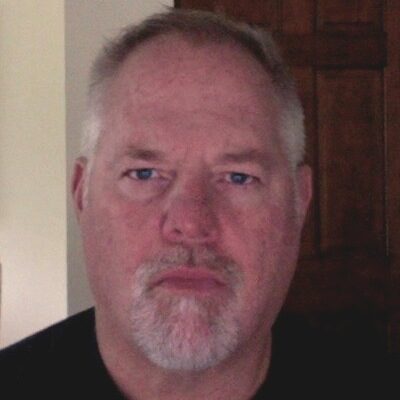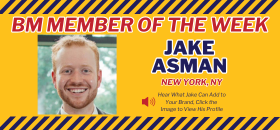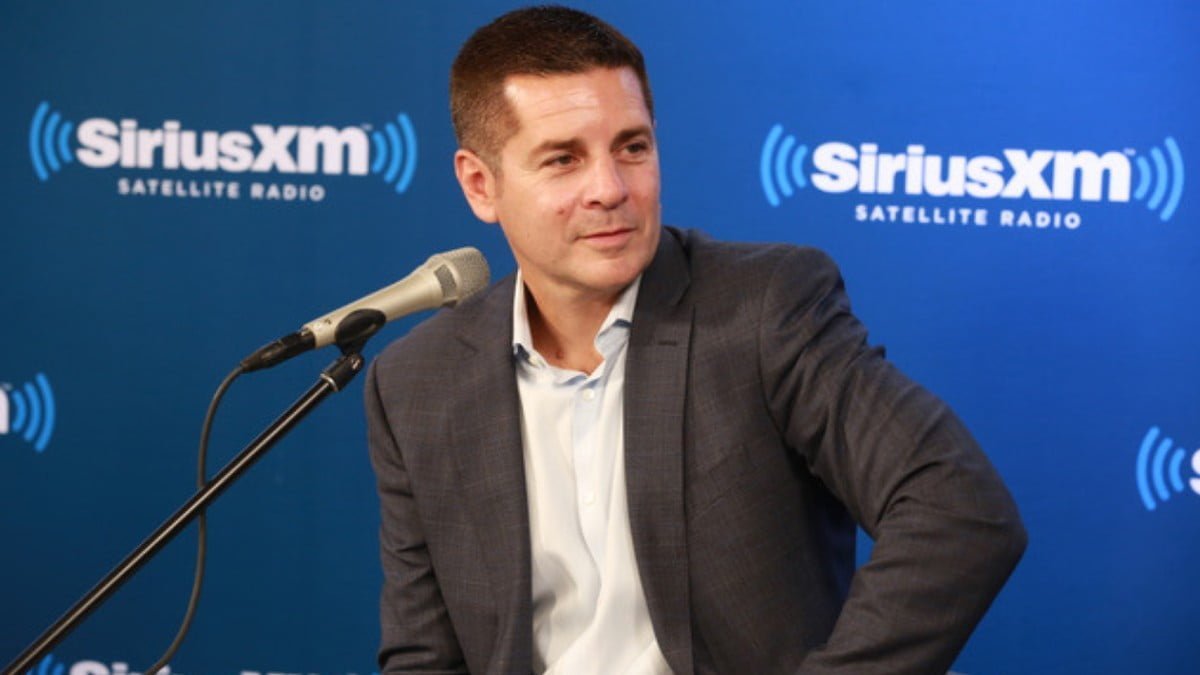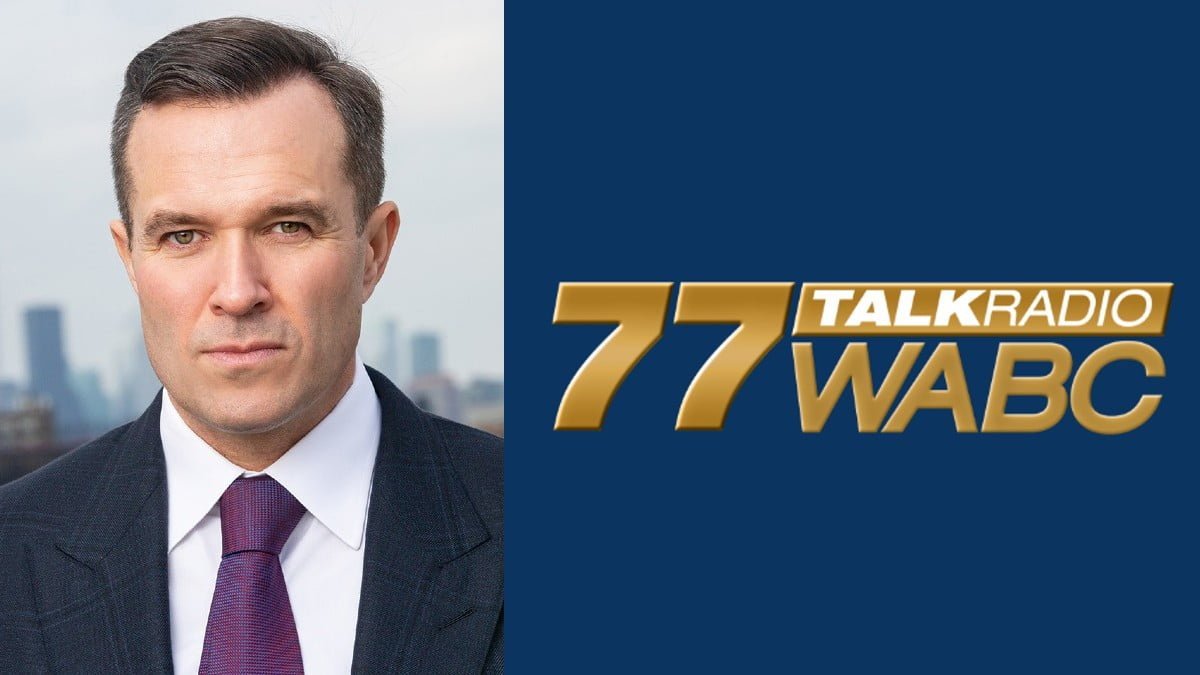I was scanning the media landscape for someone as engaging as Stephanie Miller and as learned as Thom Hartmann. I think I found the guy in Dean Obeidallah, host of the eponymous The Dean Obeidallah Show, which can be heard on SiriusXM Progress, channel 127, weeknights 6:00-9:00 PM ET.
Obeidallah is very familiar with Miller and said he owes her a lot.
“She had me on as a regular for a few years and I appreciate everything she did for me,” Obeidallah said. “Stephanie is smart, well-informed, and brings in a lot of humor to what she does. I think her show has a degree of silliness, which is great for that daypart. I’m more of a drivetime show so I can’t really be that silly. My mind has been recalibrated, more linear. Her silliness makes political issues funny and very accessible.”
Miller’s show is very humorous. It wouldn’t be incorrect to think of it as a morning zoo focused on politics.
Obeidallah has appeared all over the place. He’s been seen and heard on a multitude of international and national programs including CNN’s American Morning and The Situation Room, PBS’ Newshour with Jim Lehrer. Obeidallah has been on Air America Radio, Comics Unleashed with Byron Allen, ABC News, and HD’s Dan Rather Reports.
Pause for air.
He’s been on NPR, Fox News Radio, ABC’s 20/20, Al Jazeera, Democracy Now with Amy Goodman, and CNN International’s Inside the Middle East.
I guess he’s been on everything with the exception of a box of Wheaties.
Obeidallah is concerned about the lack of diversity in talk radio, specifically the dearth of left leaning shows.
“Thom Hartmann was on my show recently and we talked about the lack of progressive radio shows,” he said. “There is no left wing media apparatus. Part of it is the audience, too. All of us are trying to get our message out. Some shows have something like a Sinclair Broadcast Group behind it. With SiriusXM Progress, we have a huge reach and audience. But that’s not the case with a lot of shows. It’s all about the radio reach. The wiring of liberals doesn’t allow them to appreciate the approach. We have a handful of shows that succeeded in the reach. A little bit on CNN.”
Obeidallah surmises it all comes down to a listener base. He said in the eyes of corporate media, there is money to be made in right-wing radio, not so much on the left.
“Air America didn’t work for various reasons.”
As Vanity Fair reported in 2009 about Air America, “The network was beset by a raft of off-air problems almost from its inception: a charity-loan scandal, contract disputes with affiliates and employees, continual changes in ownership and management, and a 2006 bankruptcy.”
“Some of Air America’s failure was media bias,” Obeidallah said. “On the right, the base agrees with whatever they’re fed. They aren’t interested in thinking about issues.
When you watch Rachel Maddow, you’re going to learn something. Right wing media will feed you the same stuff, the same points all the time.”
Ron Hartenbaum, managing member of Crossover Media Group and former VP of sales at Westwood One, agrees with Obeidallah.
“The issue with liberal radio has to do with ownership, and frankly, most talk radio listeners tend to be conservative males,” Hartenbaum explained. “It’s not that there are no liberal listeners. It’s that they don’t exist in numbers that make commercial radio viable.”
Hartenbaum cites some exceptions like Oregon, Seattle, formerly in San Francisco with KGO.
“Somebody even considers Sputnik Radio to be liberal or progressive, but owned by Russians,” Hartenbaum explained. “Not particularly managed for Russian propaganda from what I understand. I’m not sure podcasting represents a renewed interest in liberal radio, but if you look at The Young Turks broadcasts and others, perhaps that’s the case.”
Obeidallah said his goal on every show is for people to come away with something more.
“To be a little bit more informed and smarter on a topic than you were when you tuned in. But I do think a few podcasts can change the landscape. You’ve got some guys like The Young Turks and the MeidasTouch podcast. Podcasts are playing a big role as they are so democratized. You don’t need a corporate media structure.”
Obeidallah said it’s about getting your message across whether it’s on a podcast, YouTube, iTunes, or on a megaphone.
“To me it’s about the age of the listener. It’s a generation defined by values. If you believe in certain issues, you can be from 18-98. Younger people don’t call. We must find different ways to engage them.”
He’s having a good time with his show, but that doesn’t mean he doesn’t get frustrated from time to time.
“I will yell and scream on occasion,” Obeidallah said. “I try not to go over the top. I’m on a radio show. I love to go down to the street and talk to people. I’ll talk to my elevator when nobody else is around.”
His brain invariably moves in creative directions. He said a radio show is a performance, not unlike being onstage.
“I love doing standup comedy. I hope I can make people laugh. That’s my hope. Sometimes what I say on the air can be a barometer for my standup act. It’s harder to know if it works on the air as opposed to a live audience with immediate feedback. There are times if something works during my standup act I might try to integrate it into my show. It’s an inexact science. Sometimes a bit will work, sometimes it won’t.”
Obeidallah said his law degree helps him out in a lot of ways. He’s able to lay out his analysis.
“When we question why the documents Joe Biden had in his office versus the documents at Mar-a-Lago, I have the experience to analyze why they are similar. Or conversely, how they can’t be compared logically.”
Standup comedy used to be his full-time job, and he said he still somehow finds time to do it a few times a week. Obeidallah said he did a lot of political comedy before the midterms, also a lot of observational material. He said you have to hold your own point of view. If it’s not funny, it’s a speech. Politics is a big part of my comedy.
“My audiences respond to clips on YouTube, although that’s usually my best stuff,” he jokes. “When you do a comedy show, audiences are mostly open minded. It’s a rarity to get heckled. I think alcohol makes people heckle and yell. If you had the same audience sober, you probably wouldn’t see those things. People come up to me after the show and ask if I’m really Arab or if I’m making a lot of the stuff up. It really doesn’t bother me. I’m happy to have the questions.”
For his comedy Obeidallah was recognized with a Bill Hicks Award.
“Hicks was fearless,” he said. “He loved to challenge his audience. Lewis Black is a friend and he challenges his audience as well. The award was special to me. I joined comedy in the post-911 world. They told me my act was something Bill would have done.”
Obeidallah said Hicks couldn’t have cared less about the audience liking him. That can offer a lot of freedom for a comic.
“I’m more like a puppy dog,” he said. “I need that approval, to be liked. Colin Quinn will push people. I think Dave Chappelle, Chris Rock will push you on race.”
Obeidallah said 9/11 was an impetus for him to become vocal. He was right there when it all happened.
“Like everybody else I was in shock. I was down there in lower Manhattan, standing on the street corner and watching as the second tower collapsed.”
At that moment, Obeidallah knew America had changed forever.
“I know it was because I was changed forever. I woke up on September 10th as an American. I woke up on September 11th as an Arab. I was no longer a white American, and that was society’s choice. It was at that point I was forced to answer for the worst of my community. Everything I would do from then on would be defined by that terrorist attack.”
His father is Arab. Obeidallah has cousins who are also Arab.
“Nine months after the attacks we were still being demonized,” he said. “But I think the event inspired me little by little. As time went on I became more in touch with my Arab heritage. It was sort of a natural development, not really my choice. I was the same guy from New Jersey I always was, but now American society told me I was a minority. I’m happy to focus on injustices, even if I’m not seen as white.”
Because of 9/11 Obeidallah can more closely relate more to the racism facing the Black community and other minorities targeted by racism.
“My journey going from a white American to an Arab has built more kinship,” he explained. “You suddenly realize what it’s like to be demonized. It’s a visceral feeling. When Trump ‘banned all Muslims’ it hurt in ways you cannot imagine. That has never been said by a world leader. Trump brought it to a new political level. I think it’s in a lull right now. This is the time for Arabs to meet people. The prejudice will come back. I just want to be your Muslim BFF.”

Jim Cryns writes features for Barrett News Media. He has spent time in radio as a reporter for WTMJ, and has served as an author and former writer for the Milwaukee Brewers. To touch base or pick up a copy of his new book: Talk To Me – Profiles on News Talkers and Media Leaders From Top 50 Markets, log on to Amazon or shoot Jim an email at jimcryns3_zhd@indeedemail.com.








